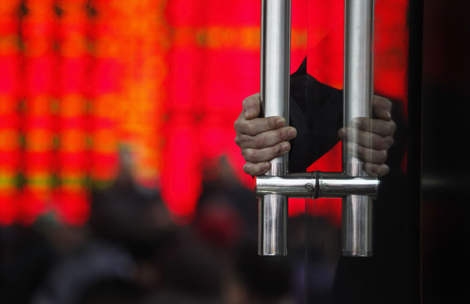Bizchina
Powerful reasons to invest in China
By John Dorfman (China Daily/Agencies)
Updated: 2010-03-23 10:06
 |
Large Medium Small |
|
 |
|
In the worldwide economic crisis of the past three years, China held up better than most countries and achieved more than 7 percent annual growth in its gross domestic product. [hina Daily] |
In the 1980s, a crucial question for portfolio managers was what to do about Japan. Today, the parallel question is what to do about China.
From 1978 through 1989, Japan gave the United States heavy competition for world leadership in business and finance. Japanese stocks rose 12 years in a row, gaining a cumulative 700 percent, or almost 19 percent a year, compounded.
Since then, the Nikkei-225 Stock Average has fallen 73 percent, or 6.3 percent a year, with 11 down years in the past 20. Clearly, those managers who were overweight Japan in the 1980s did great, while those who have favored Japan in more recent years did poorly.
Today it is China that challenges the US for world economic leadership. Since the end of 1990 the Shanghai Stock Exchange Composite Index has risen more than 2,400 percent, for an annual return of - you guessed it - almost 19 percent a year.
Is China an echo of Japan, destined to flash and then flame out? No one knows for sure. Personally, I doubt it.
There are powerful reasons to invest in China, and also some strong reasons not to. Let's start with the negatives.

China's big cities, notably Shanghai and Beijing, have been overbuilt, a situation that might hurt both real-estate owners and banks.
Some people fear that the rapid growth in China's economy and stock market is a bubble, soon to be pricked.
Now, let's turn to the positives. China's budget deficit is mild compared with that of the US. Its population is younger. And its economy is growing faster.
China's gross domestic product (GDP) growth exceeded 7 percent in eight of the past 10 years. During that time the best the US did was 3.8 percent in 2003. In eight of the past 10 years the US has achieved less than 3 percent growth.
China's education system is pretty good, and so is its infrastructure (roads, bridges, railroads, communications). Its people have a strong work ethic, and its government is determined to make China a world-class competitor in most industries.
In the worldwide economic crisis of the past three years, China held up better than most countries. In 2009, for example, China's GDP increased 8.7 percent. That compares with growth of 0.1 percent in the US, shrinkage of 3.9 percent in Japan, and shrinkage of 2.4 percent in Germany.
| ||||
On balance, I believe it's reasonable for US investors to put a portion of their assets in China. I suggest 5 percent for most investors and 10 percent for those with high risk tolerance.
More than 200 Chinese companies trade in the US, and more than 100 of them have a market value of $100 million or more. Here are five Chinese stocks that I think deserve consideration.
China Marine Food Group Ltd, based in Fujian, processes, distributes and markets fresh fish and seafood. I like its profit margins (pretax margin of 26 percent in 2008) and low debt (less than 8 percent of equity). The stock sells for 12 times earnings.
Tianyin Pharmaceutical Co, with headquarters in Chengdu, makes medicines based on traditional Chinese herbal remedies. Its debt is low (less than 3 percent of equity) and it earned an admirable 21 percent return on equity in the fiscal year ended June 2009. The stock sells for 11 times earnings.
Sutor Technology Group Ltd, based in Changsha, makes galvanized steel, steel pipe and steel sheet for appliances and cars. Its stock is selling well below book value (assets minus liabilities) per share.
Universal Travel Group, located in Shenzhen, is a travel agency that has grown to $98 million in revenue last year from $10 million in 2006. Since the company started trading publicly in 2005, earnings have risen each year except for 2009. The company is debt-free and the stock sells for eight times earnings.
One can also get exposure to China by buying stock in companies that have their headquarters in Hong Kong but do most of their business in the mainland. One that I like is China Mobile Ltd, the world's largest phone operator by market value.
China Mobile's revenue is running at an annualized pace of about $64 billion, up from about $30 billion in 2005. Analysts estimate that it earned 83 US cents a share in 2009, up from about 80 cents the year before. The company has increased its earnings each year since 1999. The stock sells for about 12 times earnings and has a dividend yield of 3.7 percent.
Disclosure note: For clients and personally, I own shares of China Mobile. I have no long or short positions in the other stocks discussed in this week's column.
The author is chairman of Thunderstorm Capital in Boston, is a columnist for Bloomberg News. The opinions expressed are his own. His firm or clients may own or trade securities discussed in this column.













